A strong backend framework is required to make the web app smooth, fast, and dependable.
Top backend frameworks play an important part in how well your website or application performs.
They handle everything, from databases and server logic to user authentication and data security.
We believe that choosing the best backend framework ensures your app’s speed, scalability, and stability.
A good backend framework makes it easier to build powerful apps faster, reduces development time, and keeps performance consistent as your user base grows.
Whether you’re building an eCommerce platform, SaaS solution, or social app, this blog will help you understand which backend framework fits your project best and how to make the right choice for long-term success.
Why Choosing the Right Backend Framework Matters More Than Ever?
With so many options available, choosing the right backend framework is a business decision.
The right framework impacts how quickly your app is built, how scalable it becomes, and how much ROI you get in the long run.
A well-chosen backend can improve development speed by up to 40%, improve app performance by 2x, and reduce maintenance costs.
That’s why backend frameworks comparison has become an important part of any modern web development strategy.
- Microservices architecture for flexible scaling.
- Cloud integration that supports hybrid and distributed apps.
- Real-time data handling for faster user interactions.
- AI-based performance optimization that automates backend efficiency.
Picking the right framework can make or break an app’s future. The faster and more scalable your backend is, the better your user experience and business growth will be.
What to Look for When Choosing a Backend Framework?
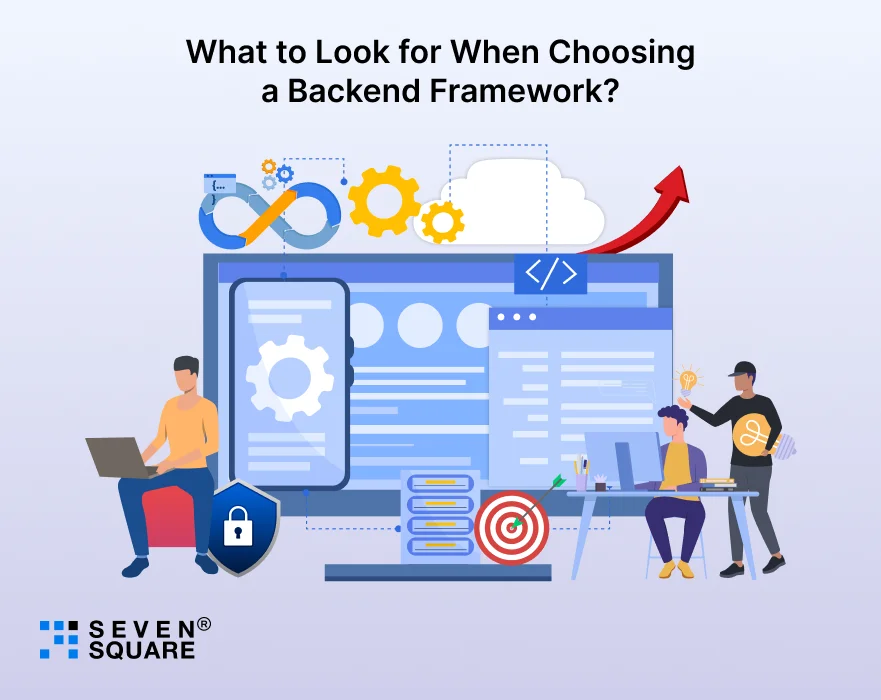
You need to understand how to choose a backend framework that fits your project’s needs.
Every framework has strengths, but the right choice depends on your goals, app type, and growth plan. Here are the key things to consider:
- Performance & Scalability: Choose frameworks that handle heavy traffic and large databases without lag.
- Active Developer Community: A strong community means better support, more updates, and quicker issue resolution.
- Integration Flexibility: Ensure your backend framework for web app works smoothly with frontend frameworks like React, Angular, or Vue.js.
- Ecosystem & Libraries: Frameworks with built-in tools, APIs, and plugins help developers save time and ensure quality.
- Security: Today, security threats are increasing. Choose a framework with built-in authentication, encryption, and access control.
Top 10 Backend Frameworks for Web Development (With Pros, Cons & Best Use Cases)
We continuously test and implement the top backend frameworks to ensure every project we deliver is optimized for performance, security, and scalability.
Here’s a data-backed comparison of the best backend development frameworks with insights on when and why to use each.
1. NodeJs: Perfect for Scalable & Real-Time Apps
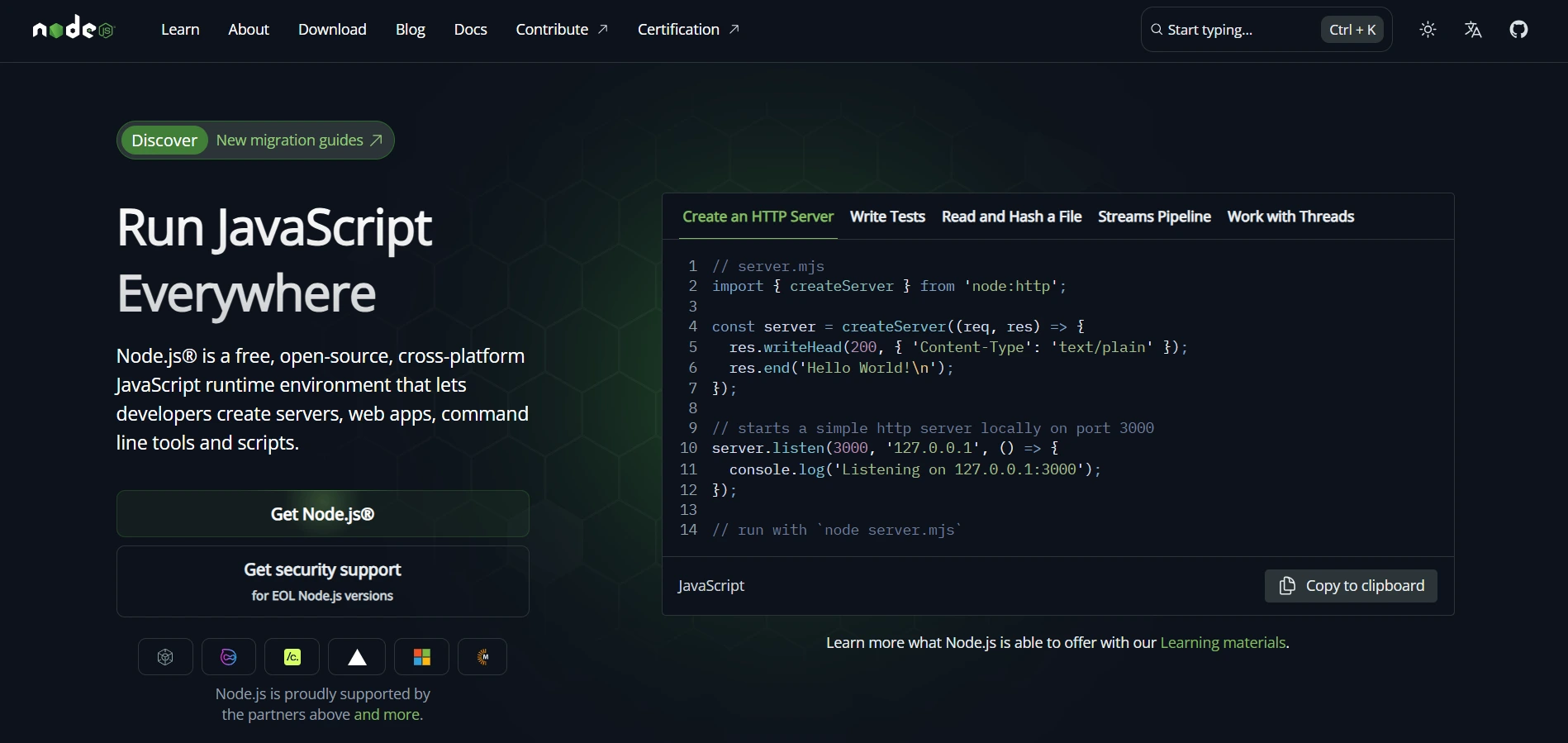
Best Use Cases: Chat apps, streaming platforms, SaaS tools, and APIs.
Pros:
- Excellent for real-time applications (e.g., chats, gaming, live streaming).
- Non-blocking, event-driven architecture ensures high performance.
- Massive open-source community and library ecosystem (NPM).
Cons:
- Not ideal for CPU-intensive operations.
- It can get complex for very large projects.
Why Does It Stand Out?
With the growing demand for real-time, cloud-ready applications, Node.js remains one of the best backend frameworks for speed and scalability.
2. Django: The Go-To Framework for Fast & Secure Web Development
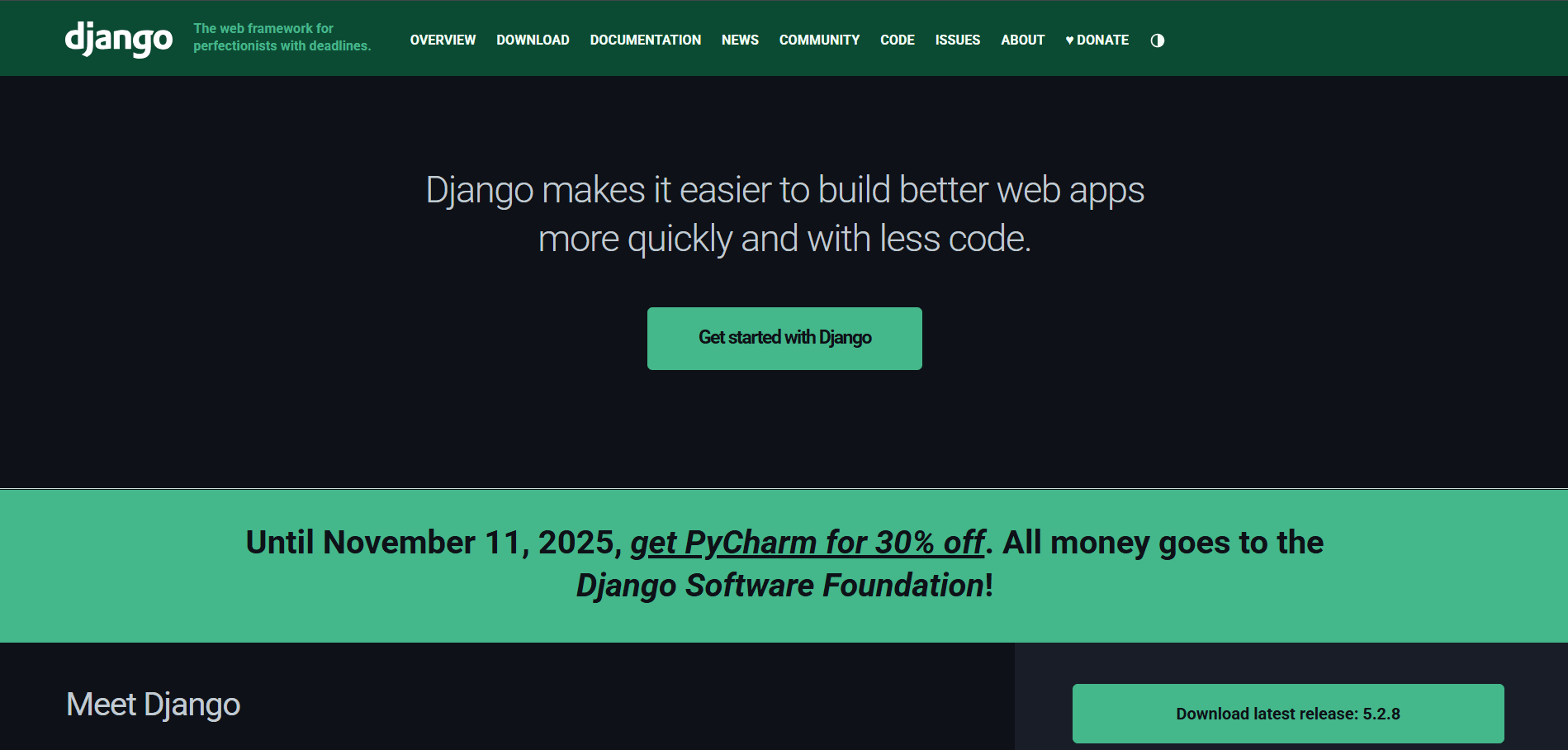
Best Use Cases: Enterprise systems, eCommerce, and data-driven platforms.
Pros:
- Built-in authentication, ORM, and admin interface for faster development.
- Extremely secure and stable for large applications.
- Supports scalable backend frameworks with modular design.
Cons:
- Slightly heavier for smaller projects.
- Less flexible for highly custom architecture.
Why Does It Stand Out?
Django’s “batteries-included” approach makes it a favorite among developers who need speed, security, and scalability, all in one package.
3. Laravel: Best for PHP-based Web Apps
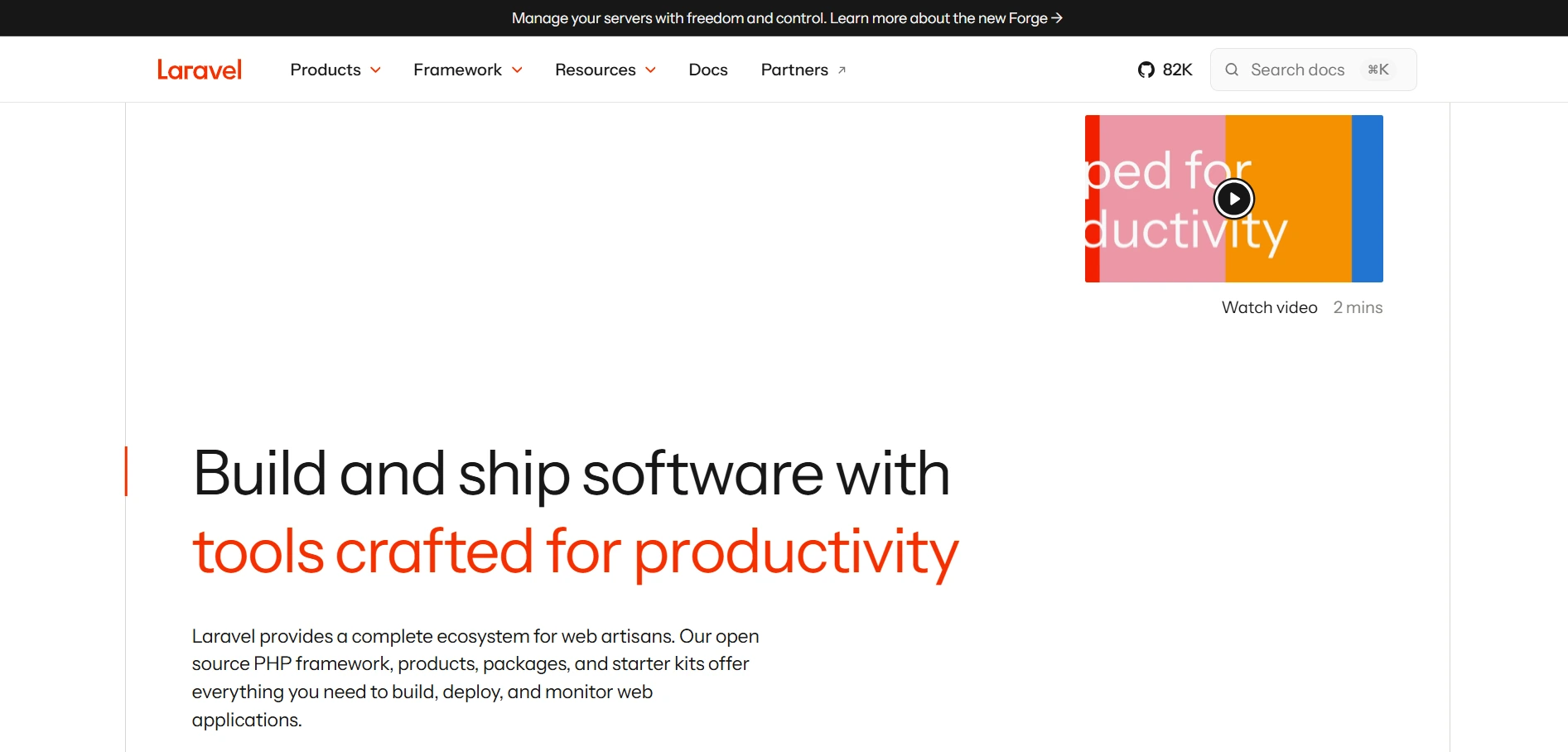
Best Use Cases: Startups, eCommerce platforms, and CMS applications.
Pros:
- Clean and elegant syntax, ideal for faster development.
- Offers Blade templating, authentication, and caching tools.
- Great for building backend frameworks for startups.
Cons:
- Slower performance for high-load apps.
- Requires good PHP knowledge.
Why Does It Stand Out?
Laravel remains one of the top backend frameworks for PHP developers, thanks to its developer-friendly ecosystem and robust security features.
4. Spring Boot: Enterprise-Grade Java Framework
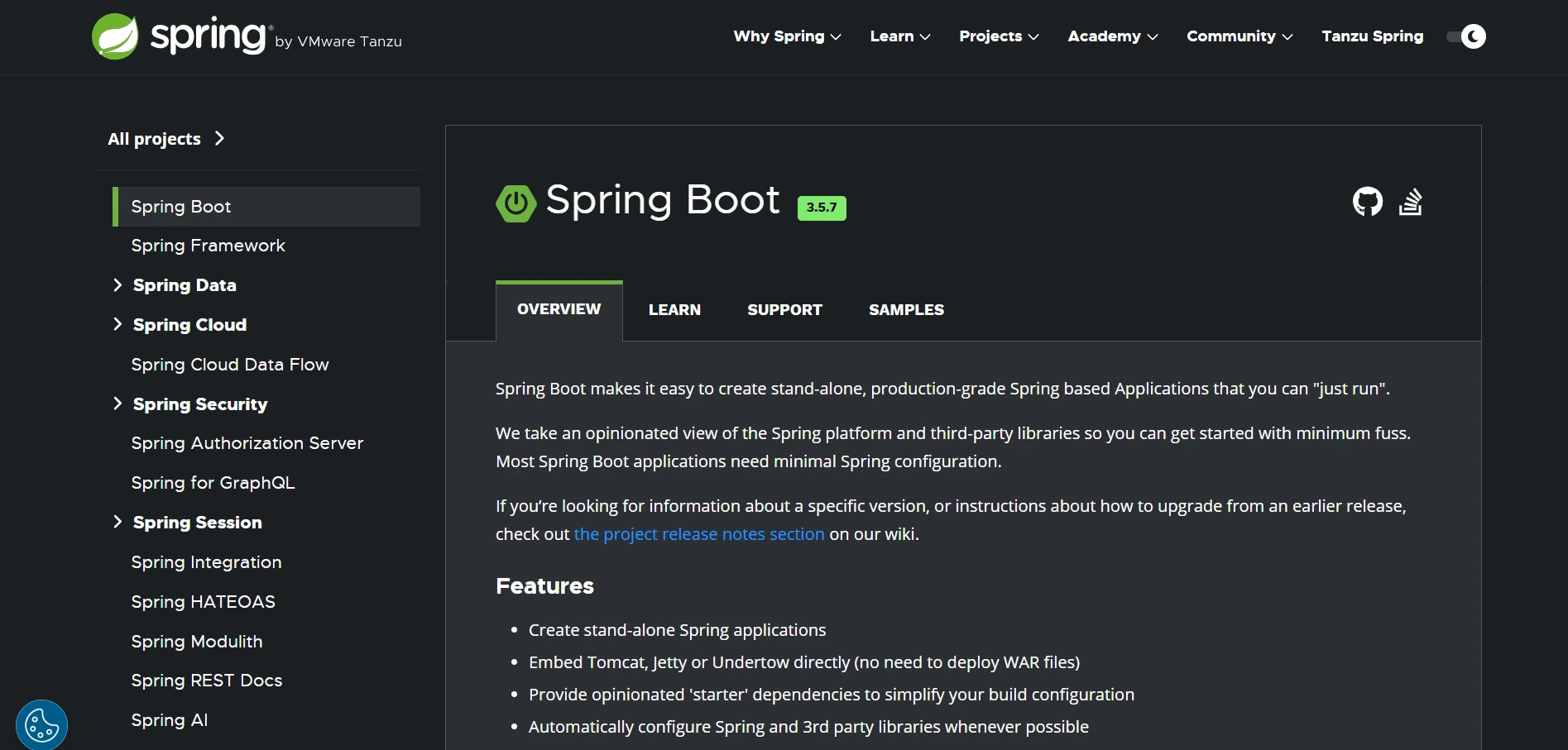
Best Use Cases: Enterprise web apps, fintech, and complex business systems.
Pros:
- Offers powerful dependency management and built-in testing tools.
- Highly scalable and enterprise-ready.
- Easy integration with cloud and microservices architecture.
Cons:
- Steeper learning curve for beginners.
- It can feel heavy for smaller projects.
Why Does It Stand Out?
Spring Boot continues to dominate the backend development frameworks list because of its enterprise-grade scalability and production-ready configurations.
5. ExpressJs: Lightweight, Flexible & Perfect for APIs
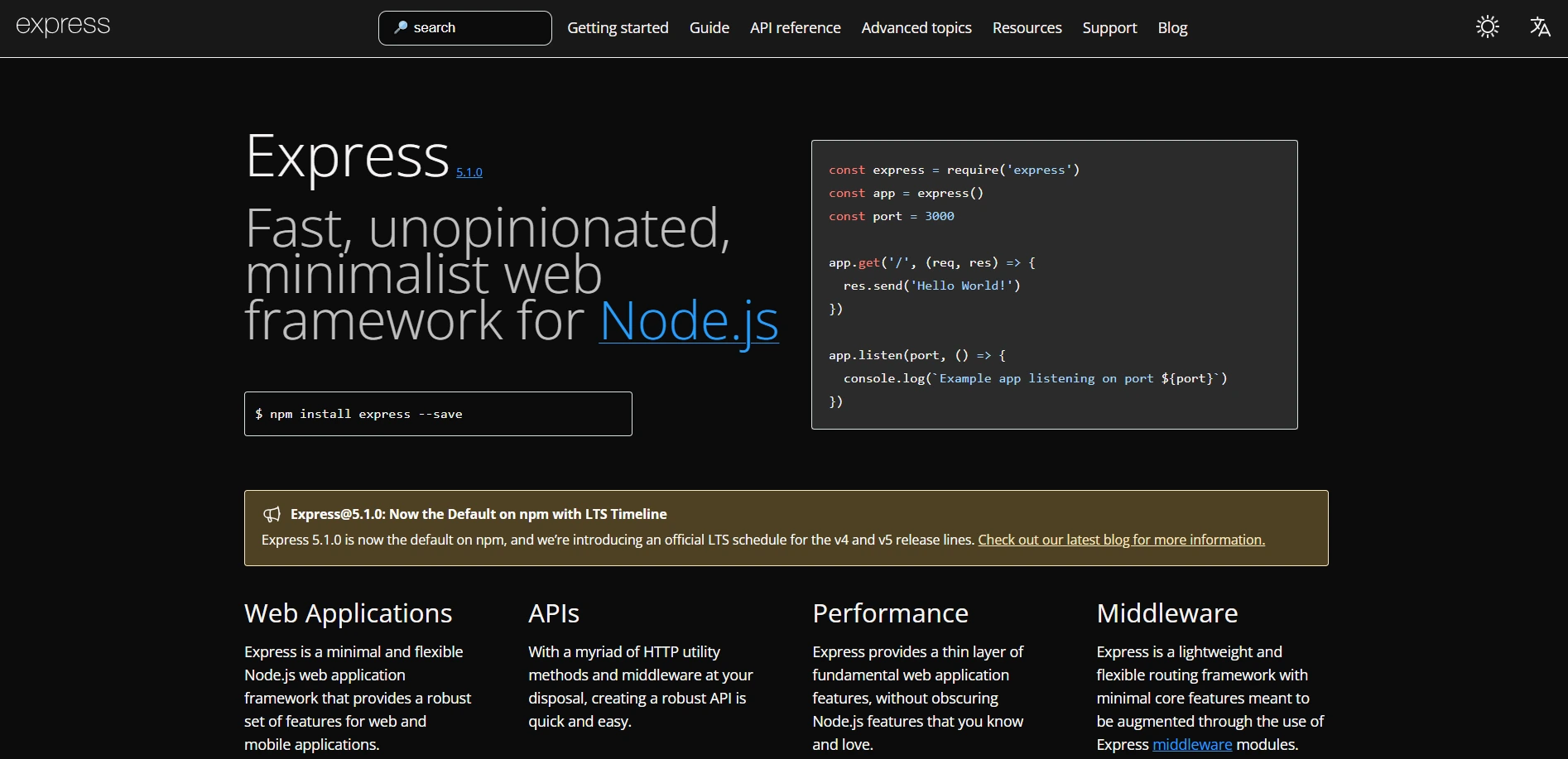
Best Use Cases: REST APIs, microservices, & lightweight backend solutions.
Pros:
- Minimalist structure makes it fast and easy to set up.
- Works smoothly with Node.js for building scalable applications.
- Large community and countless plugins.
Cons:
- Limited built-in features; relies on middleware.
- Requires strong structure management for large apps.
Why Does It Stand Out?
Express.js remains the most popular Node.js framework, loved for its simplicity, flexibility, and unmatched performance in API-driven development.
6. Ruby On Rails: The Veteran Still Loved for Speed
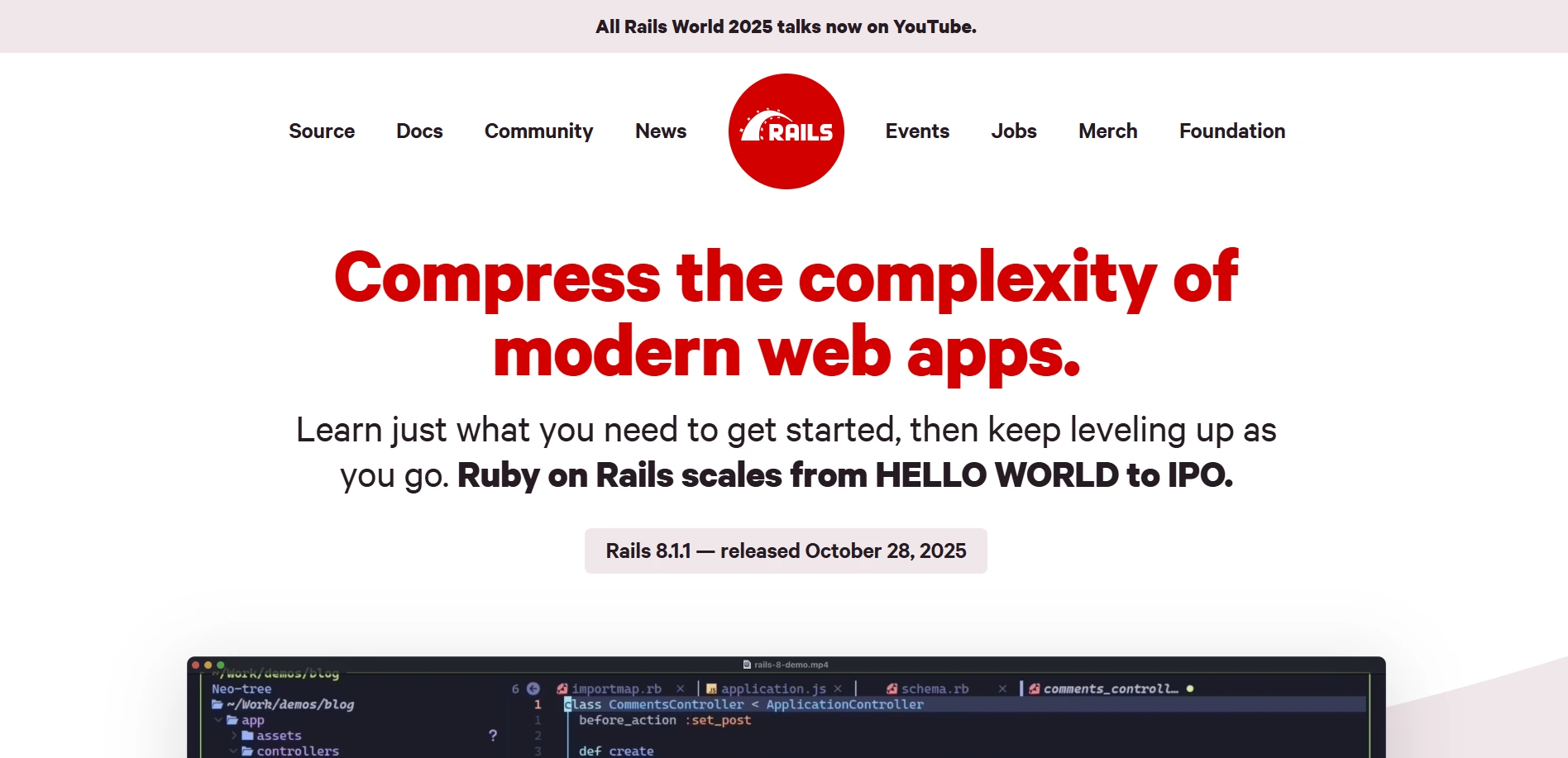
Best Use Cases: SaaS products, startups, and rapid MVP development.
Pros:
- Convention over configuration, which means faster development time.
- Pre-built modules reduce repetitive coding.
- Ideal for building backend frameworks for web apps quickly.
Cons:
- Slower runtime performance.
- Fewer developers compared to newer frameworks.
Why Does It Stand Out?
Despite being a veteran, Rails still shines with its developer productivity and startup-friendly approach for rapid app creation.
7. ASP.NET Core: Microsoft’s Modern Solution for Web Apps
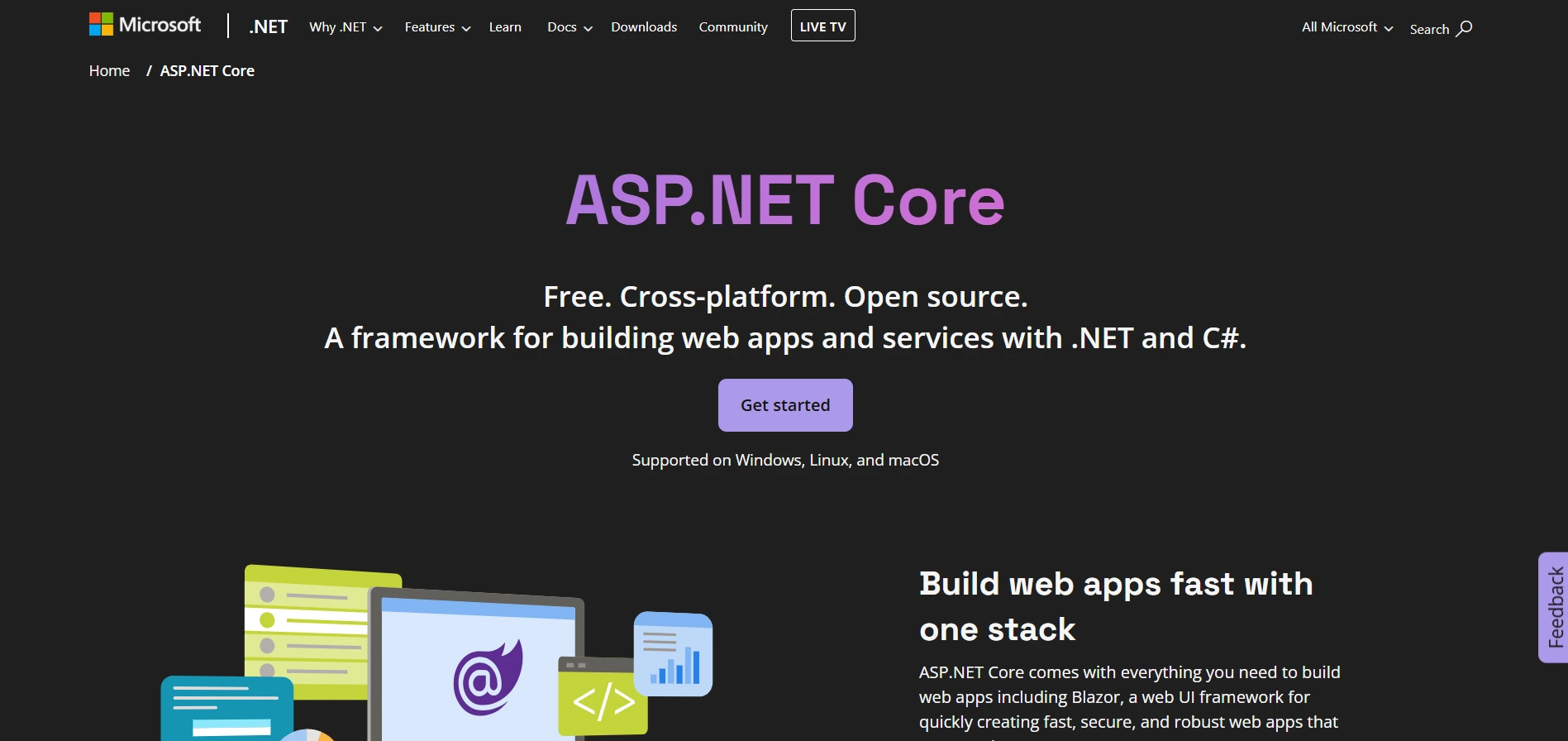
Best Use Cases: Enterprise apps, large-scale portals, and SaaS platforms.
Pros:
- High performance and reliability under heavy loads.
- Excellent for cross-platform web development.
- Deep integration with Microsoft Azure and Visual Studio.
Cons:
- Smaller open-source community compared to Node.js or Django.
- It can feel complex for beginners.
Why Does It Stand Out?
ASP.NET Core dominates enterprise backend development frameworks because of its robust performance, security, and cross-platform capabilities.
8. Flask: Minimal Yet Powerful Python Micro-Framework
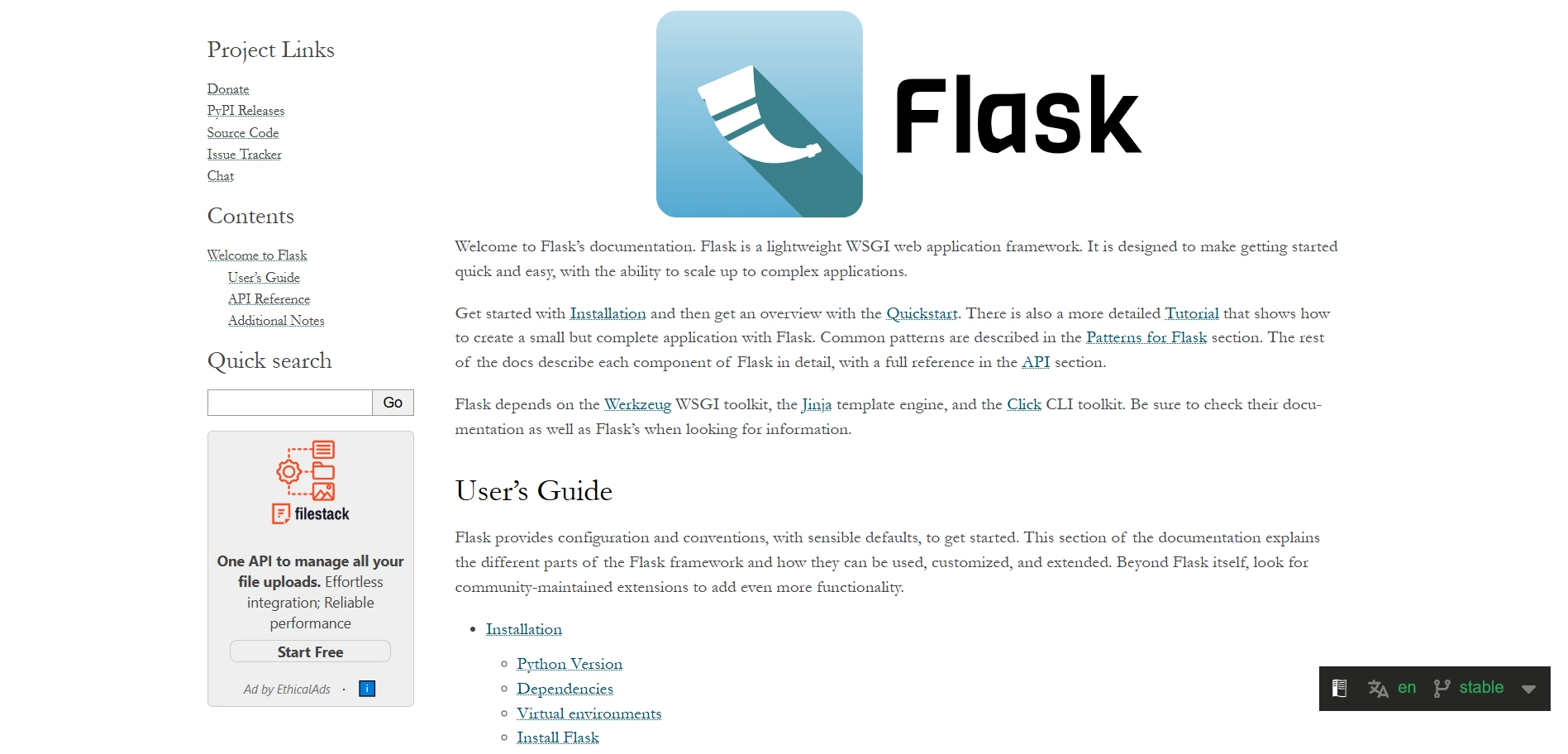
Best Use Cases: APIs, prototypes, and microservices.
Pros:
- Lightweight and flexible with minimal setup.
- Perfect for small to mid-size web apps.
- Easy to learn and extend with plugins.
Cons:
- Requires additional tools for large-scale apps.
- Fewer built-in security features than Django.
Why Does It Stand Out?
Flask is a favorite among developers who value simplicity and speed, making it a top choice for modern Python-based backend development.
9. Phoenix(Elixir): Fast for Real-Time Applications
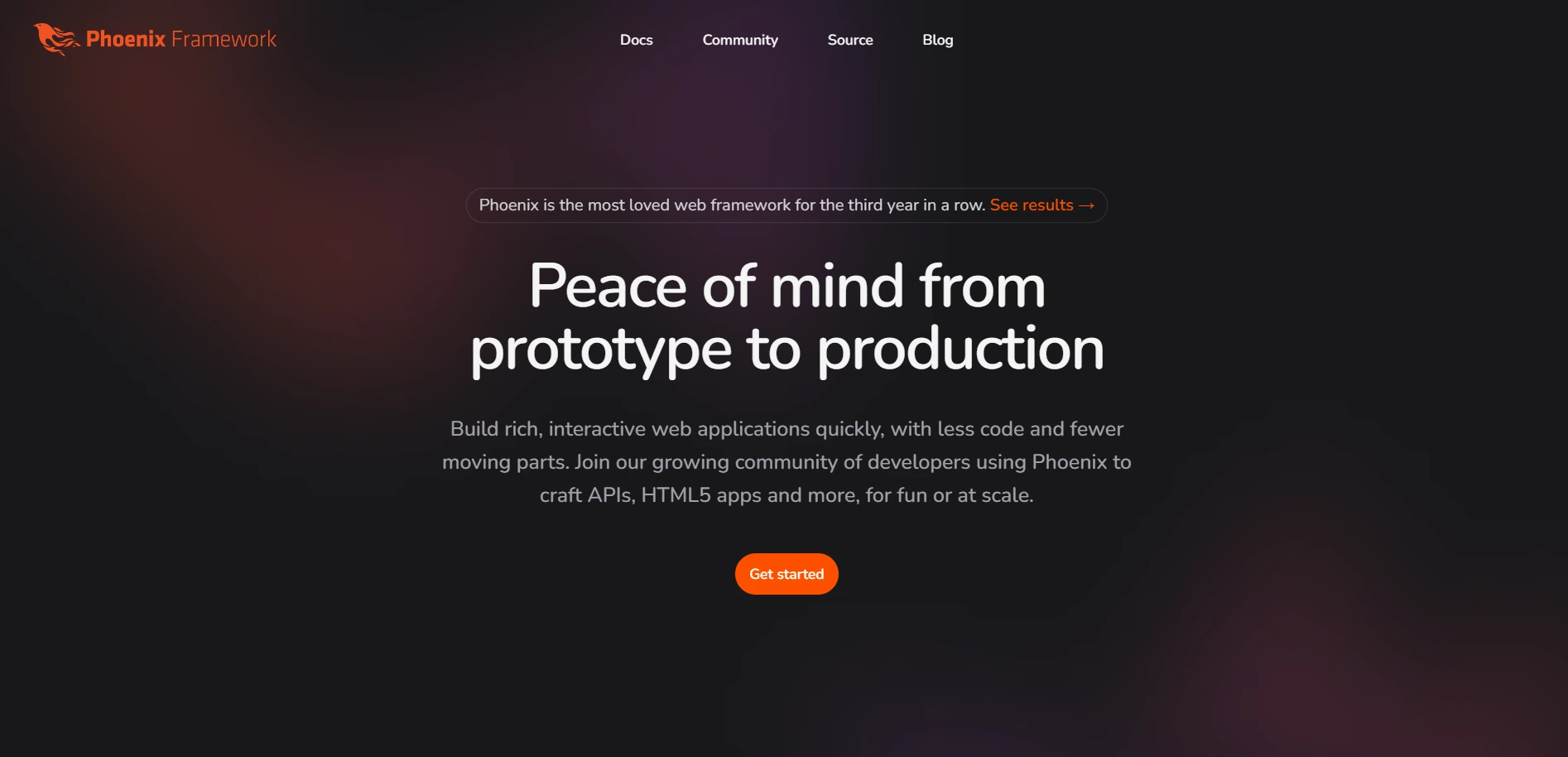
Best Use Cases: Real-time apps, messaging platforms, and IoT solutions.
Pros:
- Built on Elixir and Erlang, known for fault tolerance and concurrency.
- Handles millions of connections simultaneously.
- Excellent for real-time data processing.
Cons:
- Smaller talent pool compared to mainstream frameworks.
- Learning curve for the Elixir language.
Why Does It Stand Out?
Phoenix is one of the most trending backend frameworks, which is perfect for developers looking to build real-time & ultra-fast applications.
10. FastAPI: The Rising Star for Modern Python Projects
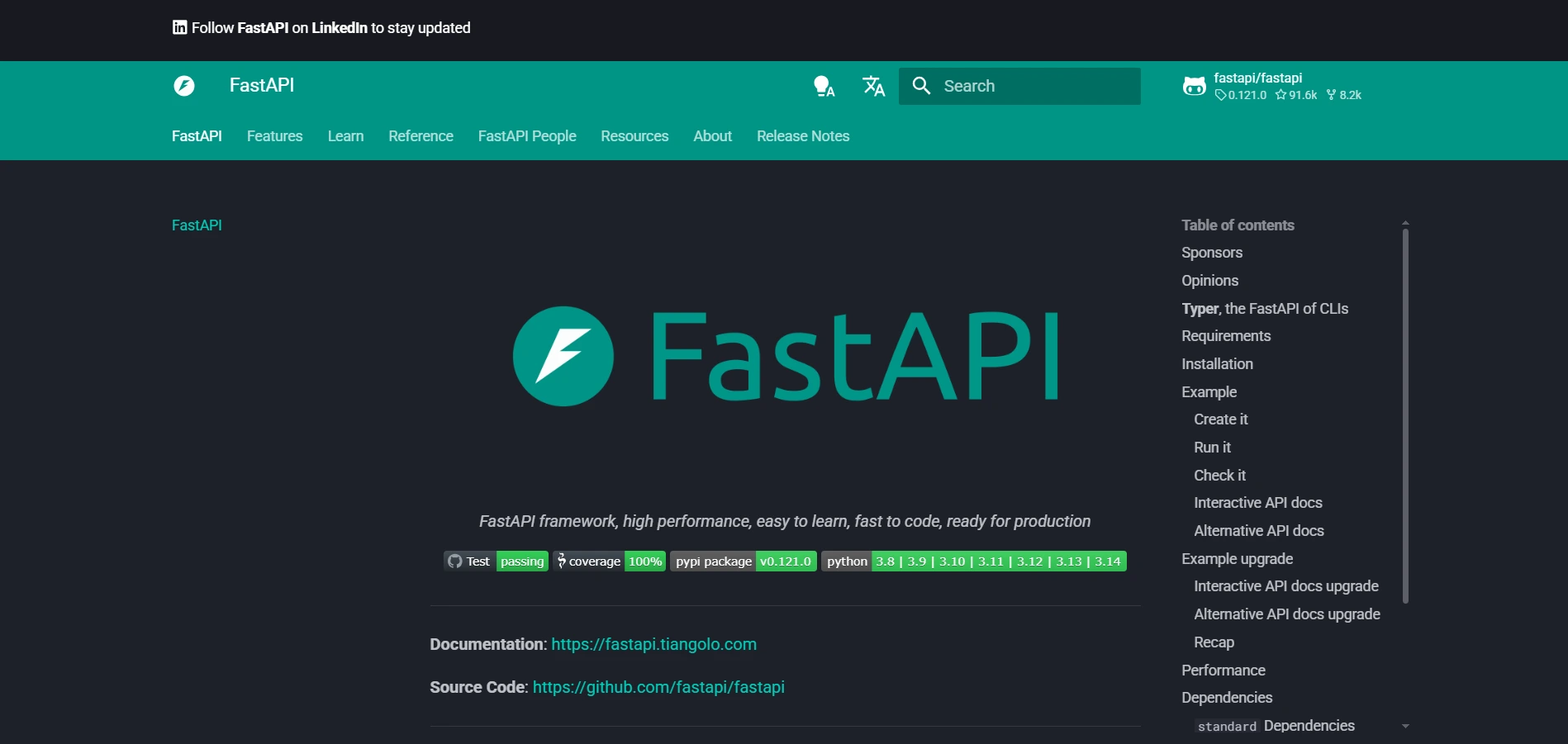
Best Use Cases: APIs, AI-based apps, and microservices.
Pros:
- Lightning-fast performance, built on modern Python standards.
- Automatic data validation and API documentation.
- Great for integrating with AI, ML, and automation projects.
Cons:
- Relatively new, smaller community.
- Slight learning curve for beginners.
Why Does It Stand Out?
FastAPI is quickly becoming one of the top backend frameworks because it combines Python’s simplicity with incredible performance & automation capabilities.
Whether you need a fast MVP, a secure enterprise app, or a real-time platform, our team helps you choose and implement the best backend development frameworks that scale with your business.
Backend Frameworks Comparison: Which One Is Best For You?
Choosing between multiple frameworks can be difficult, so here’s a simple comparison table that helps you understand the top frameworks side-by-side.
| Framework | Best For | Performance | Scalability | Ease of Learning | Community Support |
| Node.js | Real-time apps & APIs | Extremely fast | Highly scalable | Easy to learn | Very large community |
| Django | Secure, fast Python projects | Great performance | Well scalable | Moderate learning curve | Large global support |
| Laravel | Elegant PHP web apps | Good speed | Highly reliable | Simple to learn | Strong developer base |
| Spring Boot | Enterprise Java apps | High performance | Best scalability | Harder to learn | Excellent enterprise support |
When to choose each:
- Node.js: Ideal for MVPs, chat apps, or streaming platforms.
- Django: Perfect for data-heavy, secure applications.
- Laravel: Best for startups or quick product launches.
- Spring Boot: Go-to choice for enterprise and high-load systems.
What Are the Upcoming Trends in Backend Development?
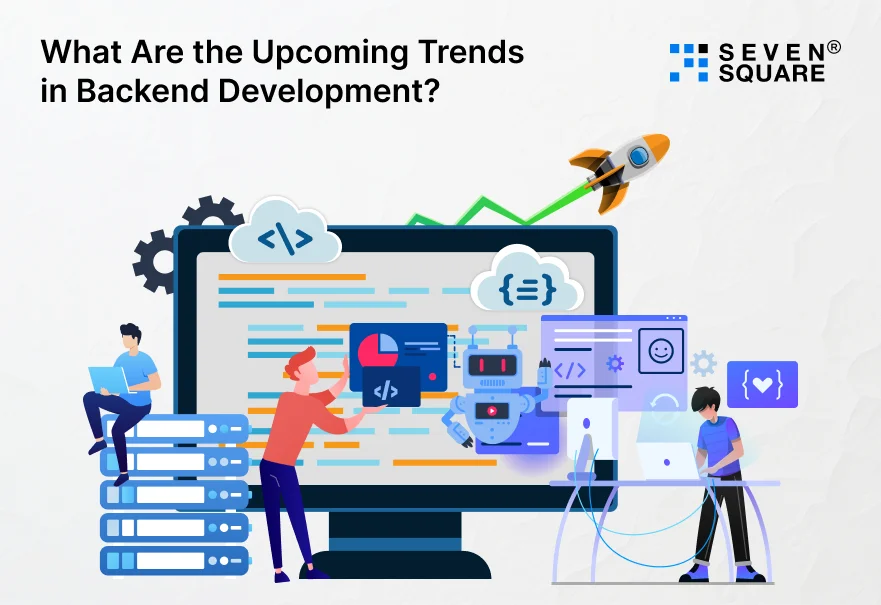
The future of backend frameworks is changing quickly, which brings smarter and faster ways to build web and mobile apps. Here’s what’s trending now:
- Serverless Architecture: Developers are moving away from traditional servers to scalable, pay-as-you-go cloud setups.
- AI-Based Automation: AI now helps optimize backend performance, predict traffic spikes, and automate scaling.
- Edge Computing: Processing data closer to the user ensures lightning-fast responses.
- Hybrid Frameworks: Frameworks combining Node, Go, and Rust are emerging for ultimate performance and reliability.
We’re constantly adapting to these trending backend frameworks to ensure your apps stay fast, secure, and future-ready.
How Do We Build Scalable & Secure Backend Solutions?
Our mission is to build scalable backend frameworks that grow with your business. Here’s how we make it happen:
- End-to-End Architecture: We design complete backend systems that handle millions of users effortlessly.
- Expertise in Modern Frameworks: Our developers master Node.js, Django, Laravel, and Spring Boot to fit every business case.
- Security-First Approach: Every backend solution is created with authentication, encryption, and advanced data protection.
- Customized Solutions for Startups & Enterprises: Whether you’re launching your first MVP or scaling a global SaaS, our backend frameworks for startups and large enterprises ensure long-term success.
Want to Integrate Frontend with Backend? Contact Us Now!
Your Future Depends Upon the Framework You Choose
Your backend framework is a strategic decision that defines how your product performs and scales.
The best backend frameworks are those that balance speed, security, and flexibility.
Each framework has its strengths: Node.js for real-time apps, Django for security, and Spring Boot for enterprise scalability.
FAQs
- Django and Laravel are great options. They’re beginner-friendly and offer strong communities and documentation.
- Node.js and FastAPI are known for high performance and speed, which make them ideal for real-time apps.
- Laravel and Express.js are perfect for startups due to faster setup, flexibility, and scalability.
- Yes, Python remains one of the best backend languages with frameworks like Django and FastAPI leading the way.